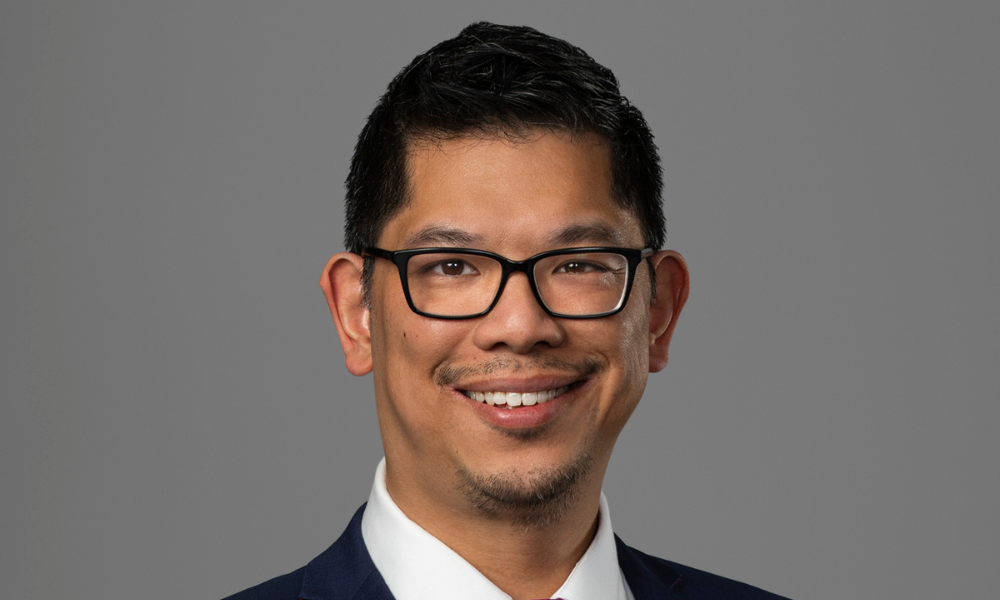
Charles Johanes pivoted, and now enjoys guiding people undergoing their immigration journey

Charles Johanes’ childhood dream was to become a doctor, and he would have been if his high school marks had just been a little different. Nonetheless, missing out on a medical career didn’t douse his desire to help people, and Johanes pivoted to law.
Earlier this year, he made partner at immigration services provider Fragomen Australia, where he is the leader of its APAC advisory and compliance practice. As someone who came from a family of migrants, Johanes “feels privileged” that he can help others going through their immigration journey.
In this interview, Johanes talks the evolution of immigration trends in APAC, and how he could also have been a travel blogger.
Growing up, I had always wanted to be a doctor, as I had always looked up to and admired the doctors who had looked after me and my family. However, as fate would have it, I missed out on entry to the university course by a few marks in my final year of high school studies. Being forced to shift gears, I looked at other professions which would allow me to still help others in different ways, and so I consulted my parents and some of my teachers and ultimately decided to pursue a career in law.
My favourite part of being a lawyer is truly serving as a trusted adviser to my clients – helping them understand their legal position, giving clarity to their decision making process, and ensuring they can move forward with their matter with confidence. Immigration law is such a complex area of law and is often a very personal journey with a significant impact on people’s lives – coming from a family of migrants, I feel privileged that I can now support others with their journey too.
We are seeing some interesting immigration trends evolve in Australia and more broadly across the APAC region. Governments are looking to reset their policies post-COVID-19, trying to strike a balance between protecting their local workforces but also being an attractive destination for highly skilled international talent and stand out in a competitive global environment. Governments are also refocusing their resources into compliance and enforcement of various immigration and visa/work-permit regulations, increasing risk for businesses and their employees who are not staying up-to-date with changing rules.
As a result, I’m focused on expanding and enhancing our compliance and advisory support to our clients in the current immigration environment across the region, and more broadly on a global scale.
Fragomen has always led the way in innovative technology in the immigration space, and we continue to further digitise processes and develop tools to support our clients. Our dedicated Fragomen Technologies arm is particularly focused on a number of new initiatives to complement our existing suite of technology products to help our clients manage their global workforces.
Recently joining the Fragomen partnership has definitely been the career highlight for me personally – being able to reach this milestone and celebrate it with my clients, colleagues and peers, as well as my family has been truly rewarding. I am very much looking forward to this next chapter in my career as an immigration lawyer.
I think with the evolution of technology in legal practice, we shouldn’t forget the human element of our work, and how a telephone call, video conference, or face to face meeting can make such a difference to how we engage with our clients, as well as our colleagues. Since the pandemic, we have started to rely more and more on digital communication channels that we often forget the value of human connection/interaction.
The practice of law, how we work and how we engage with our clients is changing – and this means that we need to adapt accordingly. Technology is no doubt a disruptor, but we as an industry and profession need to also focus on our people and ensuring those who are just starting out or early on in their career have the right training, development and support to be successful. Additionally, we must ensure that we focus on our entire well-being, striking the right work-life balance, given the high paced nature of the industry.
With the release of the Australian government’s migration strategy paper late last year, we are expecting quite a busy year ahead with several rounds of government consultations, and legislative and policy changes to be announced over the course of the next 12 months. These are the biggest reforms to our migration system in decades, and so as an immigration lawyer, it is an exciting time to be part of this and supporting our clients in shaping the future of their immigration programs.
Medicine, or a travel blogger – I love travelling!